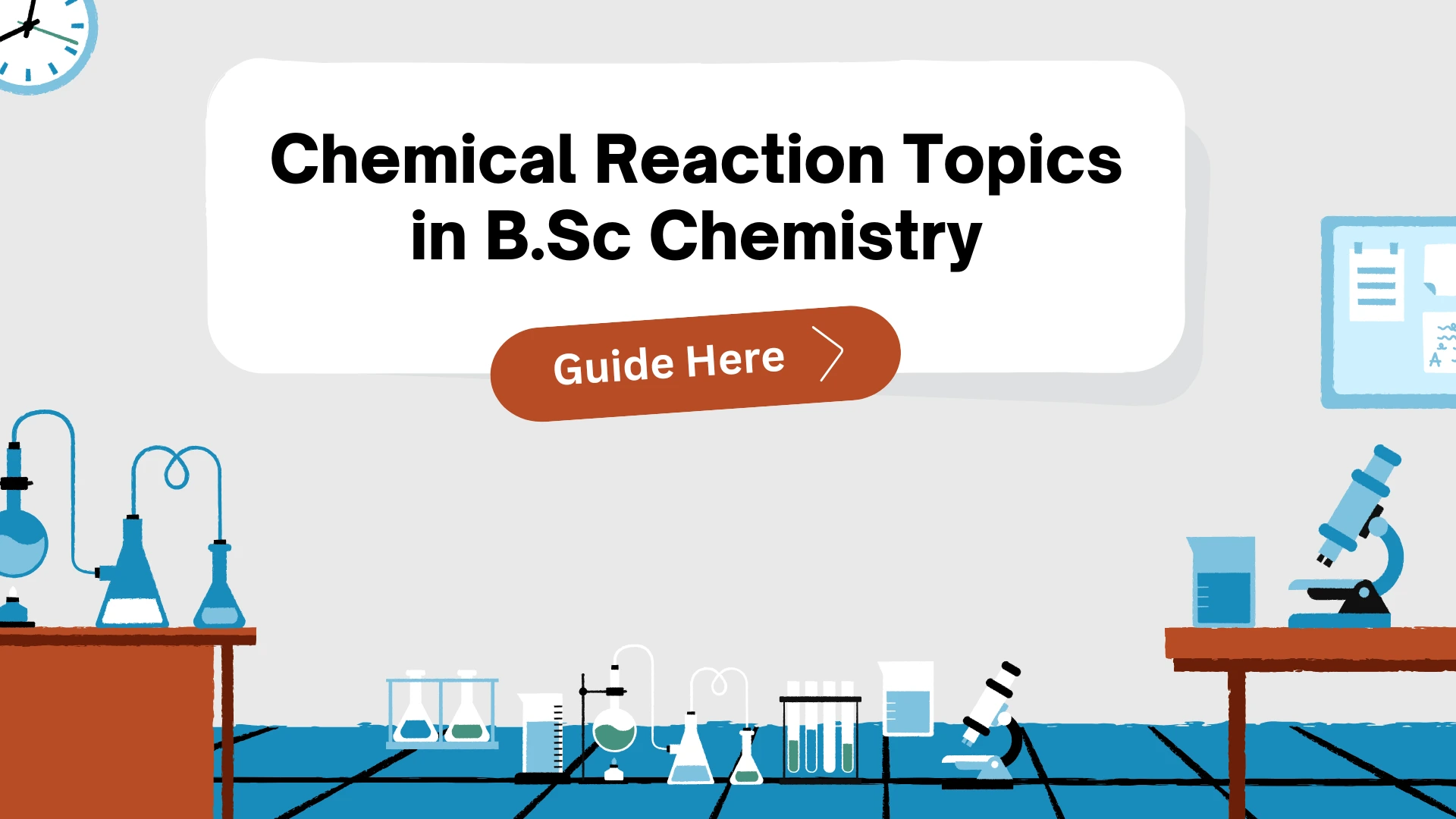Home » A Study Guide to Chemical Reactions for B.Sc Chemistry Students

Chemistry is the central science that connects physics and biology, and chemical reactions are the backbone of this field. For students pursuing a B.Sc in Chemistry, understanding chemical reactions is fundamental to mastering the subject. It provides students with a fundamental understanding of how substances interact, transform, and create new compounds.
Below is a comprehensive guide to key chemical reaction topics that B.Sc Chemistry students must master.
A thorough understanding of the types of chemical reactions forms the basis of chemistry. These include:
Learn about : Exam Topic Hints for B.Sc Chemistry Students Across All Semesters
Reaction mechanisms explain the step-by-step sequence of events that occur during a chemical reaction. Key topics include:
Chemical kinetics focuses on the rates of chemical reactions and the factors influencing them. Core concepts include:
Thermodynamics examines the energy changes associated with chemical reactions. Important topics are:
Acid-base reactions are crucial in chemistry. Key areas of study include:
Electrochemistry explores chemical reactions that involve electron transfer. Major topics are:
Organic chemistry is an integral part of B.Sc Chemistry. Key reaction mechanisms include:
Photochemical reactions are driven by light energy. Topics to study include:
Polymerization involves the formation of large molecules (polymers) from smaller units (monomers). Types include:
Understanding chemical reactions in industrial and environmental contexts is vital. Key topics include:
How Can a Chemistry Degree Align with Emerging Industry Needs
Mastering chemical reaction topics is essential for any B.Sc Chemistry student. These foundational concepts not only prepare you for advanced studies but also equip you for careers in research, pharmaceuticals, environmental science, and more. With consistent practice and the right resources, students can confidently approach their exams and future research opportunities.
Lingaya’s Vidyapeeth – Best Colleges in Delhi NCR for B.Sc Chemistry programs, offers a comprehensive curriculum to equip students with theoretical knowledge and practical skills essential for excelling in the field of chemistry.
From
Dr. Rizwan Arif
Associate Professor
School of Basic & Applied Sciences
Lingaya’s Vidyapeeth
Best Colleges in Faridabad
>> Chemistry or Physics: Which Science Program is Better and In-Demand in the Future?
>> Surprising Career Paths a BSc in Chemistry Can Open Doors to
January 7, 2025
RECENT POSTS
CATEGORIES
TAGS
Agriculture Agriculture future AI Architecture artificial intelligence BA English BA Psychology BTech CSE BTech Engineering Business management career Career-Specific Education career guide Career Opportunities career option career scope Civil engineering commerce and management Computer Science Computer science engineering Data science degree education Engineering Engineering students English Literature english program Exam tips Fashion Design Fashion design course Higher Education Journalism journalism and mass communication law Law career Machine Learning MA Psychology Master degree mathematics MBA Mechanical Engineering Pharmacy Psychology Research and Development students
University Address: Nachauli, Jasana Road, Faridabad, Haryana
Toll Free: 1800-120-4613
Mobile : 8447744303 | 8447744304 | 8447744306 | 8447744309
Address: C-72, Second Floor, Shivalik, Near Malviya Nagar,
Above HDFC Bank, New Delhi 110017
Ph.No. - 011-46570515 / 45138169 / 41755703 / +91-7303152412
Jagmani Kutir, Ground Floor, Road No-1, Rajeev Nagar,
Near Darbar Marriage Hall, Patna-800024, Bihar
Contact No: 9818352069/8130120095
Mail: [email protected]
Copyrights © 1998 - 2025 Lingaya's Vidyapeeth (Deemed To Be University). All rights reserved.
It is important to note that the following email IDs and domains are fraudulent and do not belong to our university.
LV only conducts physical/online verification of any document related to examination on the following email id: